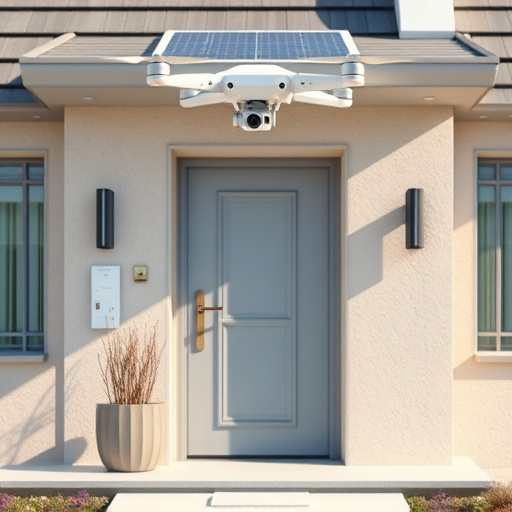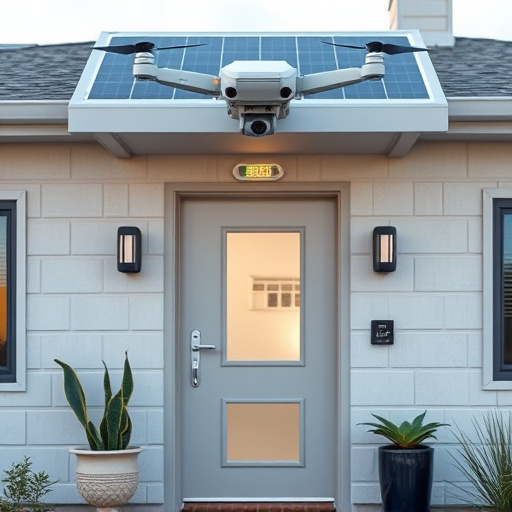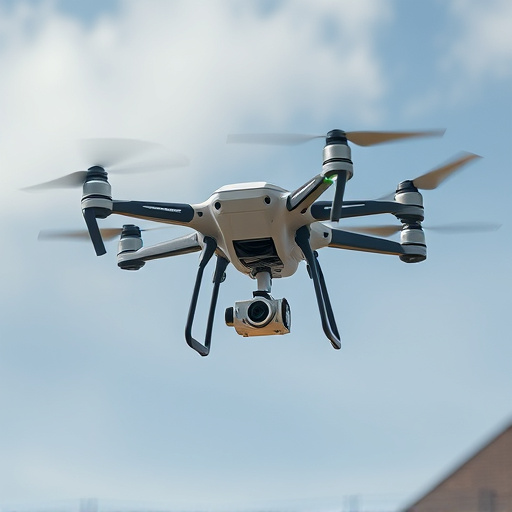The future of home security is dominated by technological innovations like AI, ML, and IoT devices, enhancing accessibility, efficiency, and effectiveness. Emerging trends include smart homes with real-time monitoring, threat response, and facial recognition, reshaping protection methods and offering increased peace of mind. These advancements drive future home security towards improved durability, encryption, and seamless integration.
The landscape of home security is undergoing a significant transformation, driven by rapid technological advancements and evolving consumer needs. As our homes become smarter and more connected, the focus shifts from traditional security systems to proactive, intelligent solutions that offer personalized and comprehensive protection. This article explores the future of home protection, delving into emerging technologies like AI-driven surveillance, biometric access control, and IoT integration, while also highlighting future trends such as decentralized networks, quantum-resistant encryption, and immersive AR/VR experiences. Discover how cutting-edge security solutions are revolutionizing residential safety in today’s digital age.
- The Shifting Landscape of Home Security
- – Exploring the evolving needs and challenges in residential security.
- – Impact of technological advancements on traditional security systems.
- Emerging Innovative Security Technologies
The Shifting Landscape of Home Security

The landscape of home security is undergoing a significant transformation as we step into an era driven by technological innovation. The future of home protection is no longer limited to traditional locks and alarms; it’s evolving into a sophisticated, interconnected web of smart devices designed to offer comprehensive security solutions. With advancements in technology, emerging home protection methods are becoming more accessible, efficient, and effective.
Innovative security technologies are leading the charge against potential threats. From facial recognition systems and advanced AI-driven surveillance to internet-connected cameras and motion sensors, these cutting-edge security solutions promise to revolutionize how we safeguard our homes. Future home security trends suggest a seamless integration of smart devices, where every element from entry points to appliances can communicate and collaborate to enhance overall protection. This shift towards an Internet of Things (IoT) approach in home security promises unparalleled customization, real-time monitoring, and intelligent response mechanisms, redefining the way we perceive and manage our home safety.
– Exploring the evolving needs and challenges in residential security.

As we move further into the digital age, the landscape of residential security is undergoing a profound transformation. The evolving needs and challenges in home protection require innovative security technologies that keep pace with an increasingly connected world. While traditional security systems have long been the cornerstone of home defense, the future of home security lies in integrating cutting-edge solutions that leverage advanced sensors, artificial intelligence, and internet of things (IoT) devices. These emerging home protection methods not only enhance safety but also offer unparalleled convenience and peace of mind for homeowners.
Security technology advancements are pushing the boundaries of what’s possible, with smart homes becoming the new norm. Future security trends suggest a seamless integration of various systems, from motion detectors and surveillance cameras to automated access control and advanced alarm systems. These interconnected devices will provide comprehensive monitoring, allowing homeowners to safeguard their properties in real-time and respond swiftly to potential threats. With such transformative changes on the horizon, the quest for effective and efficient residential security has never been more exciting or crucial.
– Impact of technological advancements on traditional security systems.

Technological advancements are revolutionizing the landscape of home protection and security. Emerging innovations in smart home technology, artificial intelligence (AI), and machine learning (ML) are transforming traditional security systems into sophisticated, cutting-edge solutions. These advanced technologies enable more comprehensive monitoring, faster response times, and improved accuracy in detecting potential threats. With the integration of AI and ML algorithms, security systems can now analyze patterns, identify anomalies, and even predict potential risks, enhancing overall home protection.
The future of home security is poised to be more proactive, intelligent, and interconnected. Innovative security technologies such as facial recognition, motion sensors with advanced analytics, and remote access controls are just a few examples of the many advancements shaping this sector. As these future security trends evolve, homeowners can expect even greater peace of mind, knowing that their properties are protected by the latest in technology, ensuring enhanced safety and convenience.
Emerging Innovative Security Technologies

The future of home protection is being reshaped by innovative security technologies that are revolutionizing the way we safeguard our spaces. Emerging advancements such as artificial intelligence (AI) and machine learning (ML) are enabling smarter, more responsive security systems. These cutting-edge solutions can analyze patterns, detect anomalies, and anticipate potential threats, enhancing overall home security. For instance, AI-powered cameras can identify familiar faces and alert homeowners of unfamiliar visitors, while ML algorithms can predict and prevent break-ins by learning typical household routines.
Additionally, the integration of IoT (Internet of Things) devices is transforming homes into intelligent fortresses. Smart locks, motion sensors, and environmental monitors communicate with central control systems, providing real-time data and remote access to homeowners. These technologies not only offer greater peace of mind but also allow for proactive security measures. With continuous innovation in materials science and engineering, future home security will be characterized by enhanced durability, advanced encryption, and seamless integration of physical and digital security solutions, setting new standards for residential protection.






